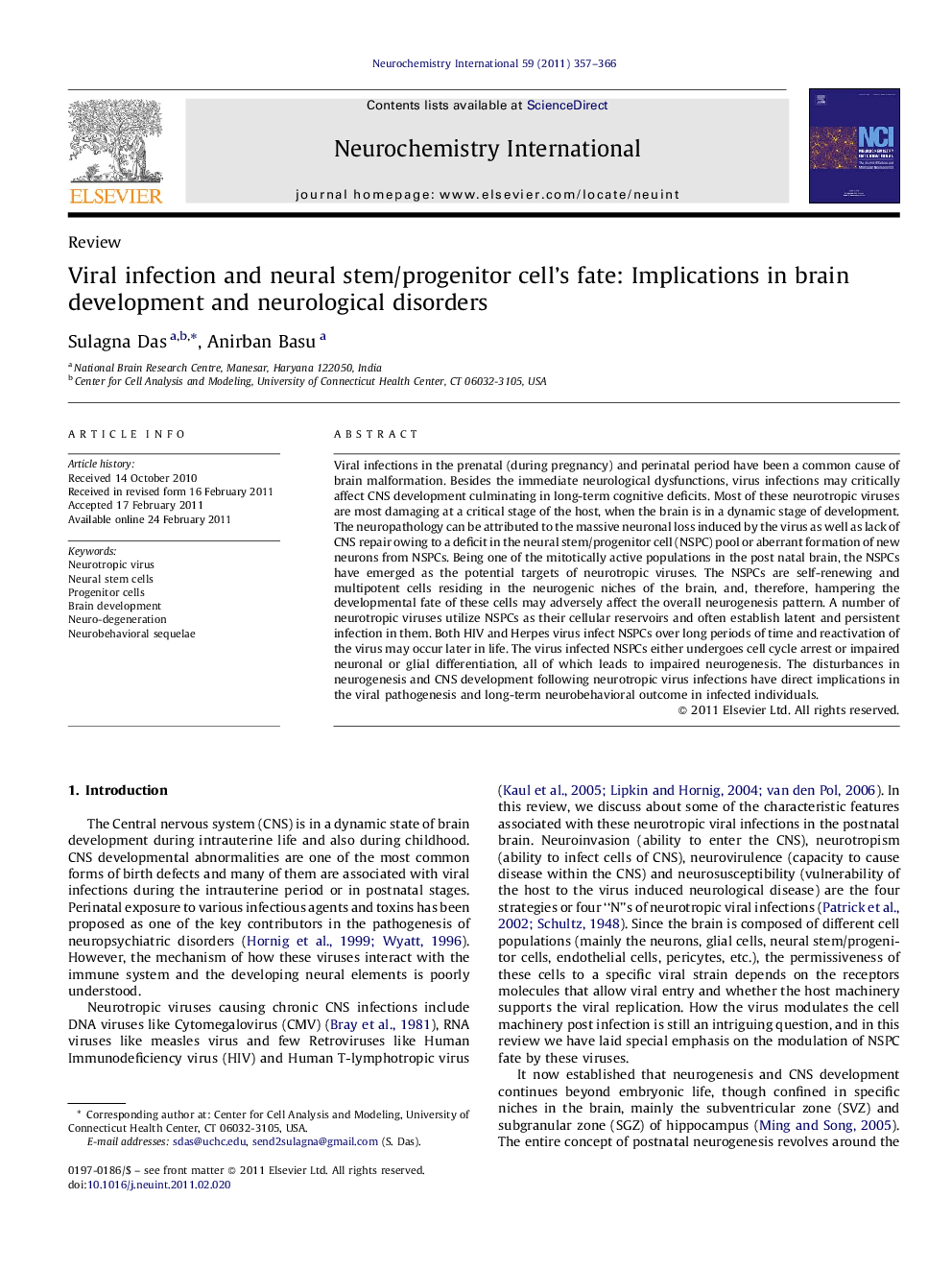| کد مقاله | کد نشریه | سال انتشار | مقاله انگلیسی | نسخه تمام متن |
|---|---|---|---|---|
| 2201252 | 1100007 | 2011 | 10 صفحه PDF | دانلود رایگان |

Viral infections in the prenatal (during pregnancy) and perinatal period have been a common cause of brain malformation. Besides the immediate neurological dysfunctions, virus infections may critically affect CNS development culminating in long-term cognitive deficits. Most of these neurotropic viruses are most damaging at a critical stage of the host, when the brain is in a dynamic stage of development. The neuropathology can be attributed to the massive neuronal loss induced by the virus as well as lack of CNS repair owing to a deficit in the neural stem/progenitor cell (NSPC) pool or aberrant formation of new neurons from NSPCs. Being one of the mitotically active populations in the post natal brain, the NSPCs have emerged as the potential targets of neurotropic viruses. The NSPCs are self-renewing and multipotent cells residing in the neurogenic niches of the brain, and, therefore, hampering the developmental fate of these cells may adversely affect the overall neurogenesis pattern. A number of neurotropic viruses utilize NSPCs as their cellular reservoirs and often establish latent and persistent infection in them. Both HIV and Herpes virus infect NSPCs over long periods of time and reactivation of the virus may occur later in life. The virus infected NSPCs either undergoes cell cycle arrest or impaired neuronal or glial differentiation, all of which leads to impaired neurogenesis. The disturbances in neurogenesis and CNS development following neurotropic virus infections have direct implications in the viral pathogenesis and long-term neurobehavioral outcome in infected individuals.
► Neural stem/progenitor cells are permissive to neurotropic virus infections.
► The virus modulates the development of these NSPCs and affect both proliferation and differentiation potential.
► The NSPCs may serve as models of persistent infection, while the newly differentiated phenotype is more susceptible to virus damage.
► Infection in NSPCs at a critical stage of brain development may lead to brain abnormalities and long term neuropsychiatric sequelae.
Journal: Neurochemistry International - Volume 59, Issue 3, September 2011, Pages 357–366